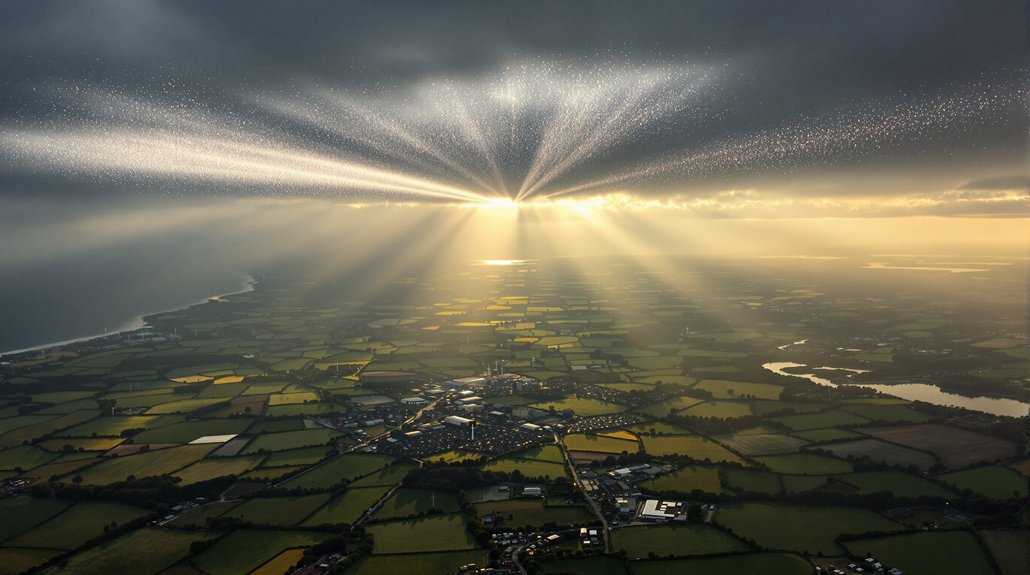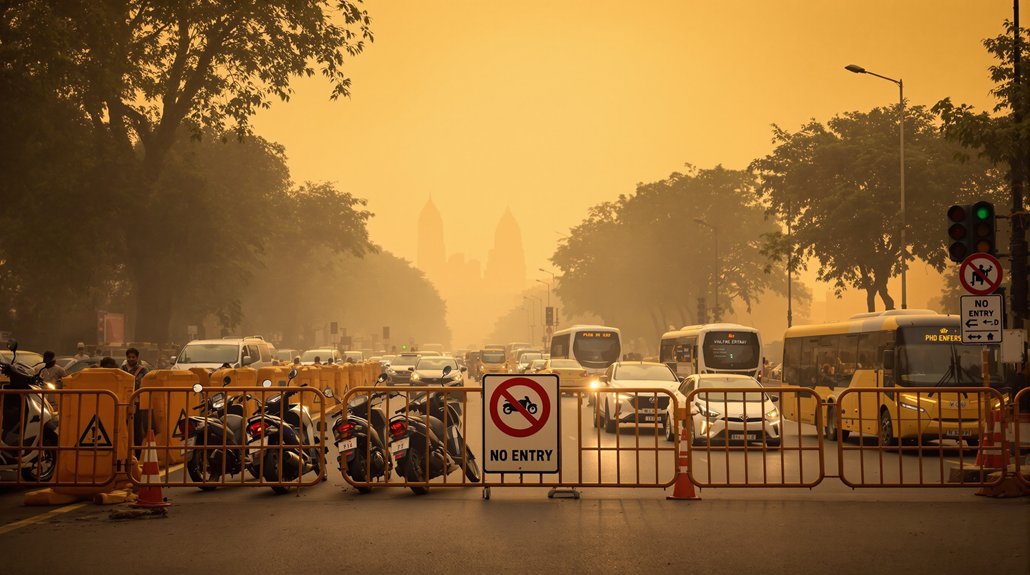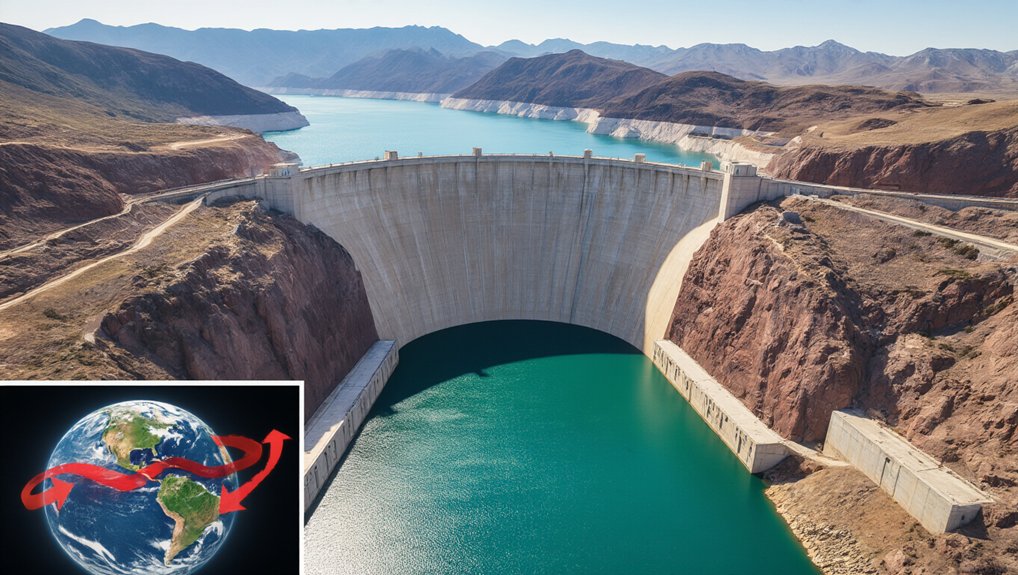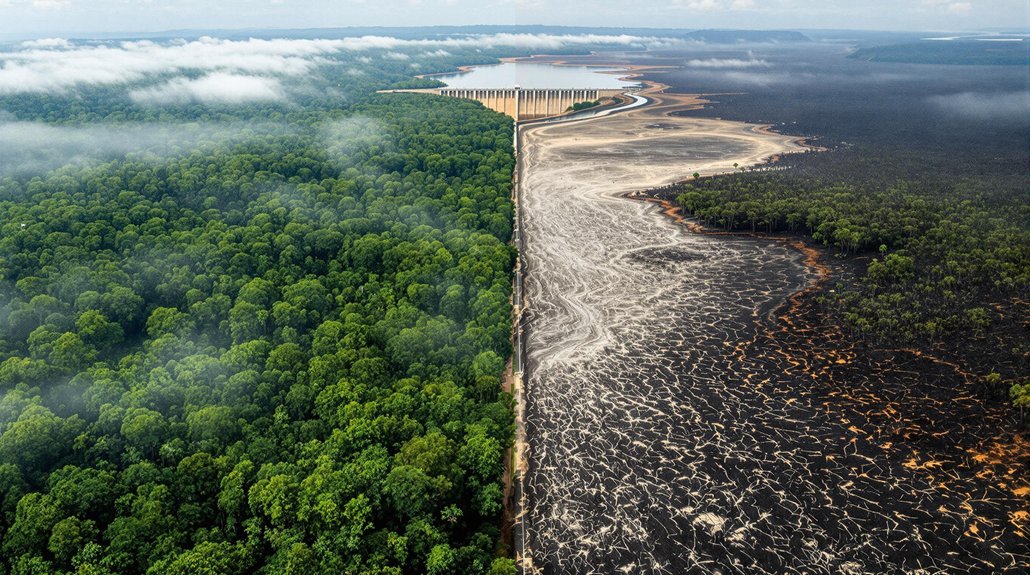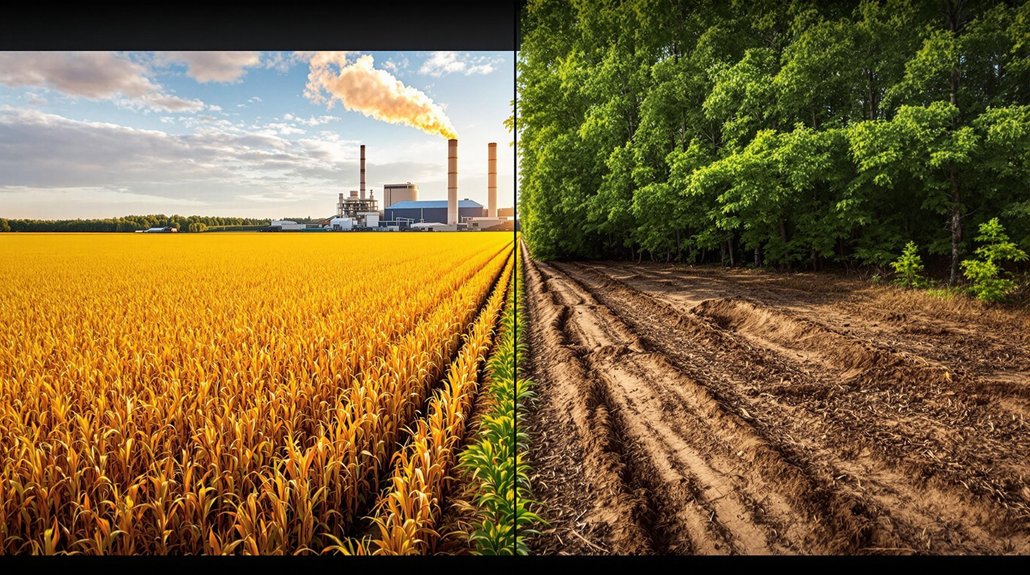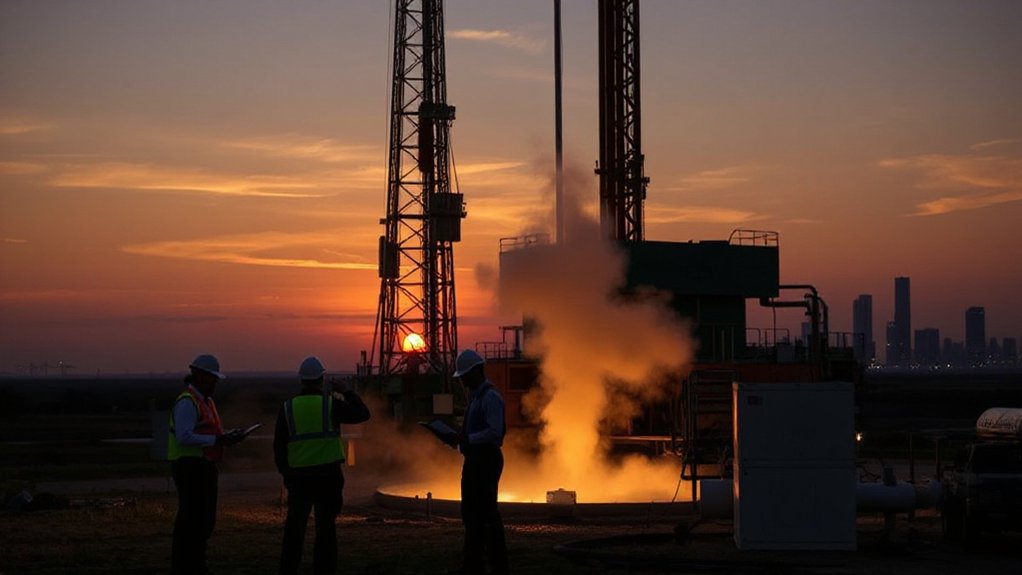Britain’s thrown £50 million at controversial sun-dimming research. Pretty bold move. The UK already has tough climate laws and killed off coal power, but clearly that’s not cutting it. Solar geoengineering might block some sunlight from reaching Earth—sounds like science fiction, right? Critics call it desperate; supporters say it’s necessary insurance. Meanwhile, the Climate Change Committee’s raising eyebrows about the whole approach. The environmental stakes couldn’t be higher.
While many nations merely talk climate change, Britain has transformed words into binding law. The 2008 Climate Change Act created a legal framework that doesn’t just suggest emission cuts—it demands them. Initially aiming for 80% reduction by 2050, Britain upped the ante in 2019 to a full net zero target. Talk about raising the stakes.
The Brits aren’t just making empty promises. They’ve rolled out their third National Adaptation Programme (NAP3) covering 2023-2028. It tackles everything from infrastructure resilience to natural environment investments. This transition to clean energy sources promises significant job creation compared to fossil fuel industries. Every five years, they review and update. No slacking allowed.
Walking the talk: Britain’s five-year climate adaptation plan forces accountability where others just offer wishful thinking.
Government departments can’t hide from climate responsibilities either. Everyone’s got skin in the game. The strategy aims for net zero emissions across operations and portfolios. The built environment—you know, buildings and stuff—is targeted for major cuts. Makes sense, since concrete doesn’t exactly grow on trees.
Britain’s climate commitment isn’t running on faith alone. The independent Climate Change Committee keeps everyone honest, evaluating progress on adaptation and mitigation. Parliamentary committees pile on additional scrutiny. The 2023 CCC report and 2024 assessment weren’t exactly handing out gold stars. They called for urgent action on governance and investment. Ouch.
Climate adaptation isn’t relegated to tree-hugger departments. It’s being woven into every policy decision across government. Even the bean counters in national spending reviews have to factor in climate goals. Transformative concept, right?
Urban planning now includes fighting floods and heat waves. New buildings are designed with extreme weather in mind. Old ones get retrofits. The UK has successfully made significant progress in shifting from fossil fuels by virtually eliminating coal power by 2020. The construction sector—not exactly known for rapid change—has been drafted into the emissions-cutting army. With 80% of buildings that will exist in 2050 already constructed today, retrofitting existing building stock is critical to meeting the ambitious 78% emissions reduction target by 2035.
Is it all working? Well, that’s where the oversight comes in. Britain’s climate gambit has impressive legal teeth, but implementation remains the challenge. At least they’ve moved beyond debate to action. Some countries are still arguing whether climate change exists at all.
References
- https://assets.publishing.service.gov.uk/media/6148b3ffe90e070438c9463d/UKEF_Climate_Change_Strategy_2021.pdf
- https://ukgbc.org/our-work/climate-change-mitigation/
- https://www.greenpeace.org.uk/challenges/climate-change/what-is-the-uk-doing-about-climate-change/
- https://www.theccc.org.uk/climate-action/uk-action-on-climate-change/
- https://commonslibrary.parliament.uk/research-briefings/cbp-9969/
